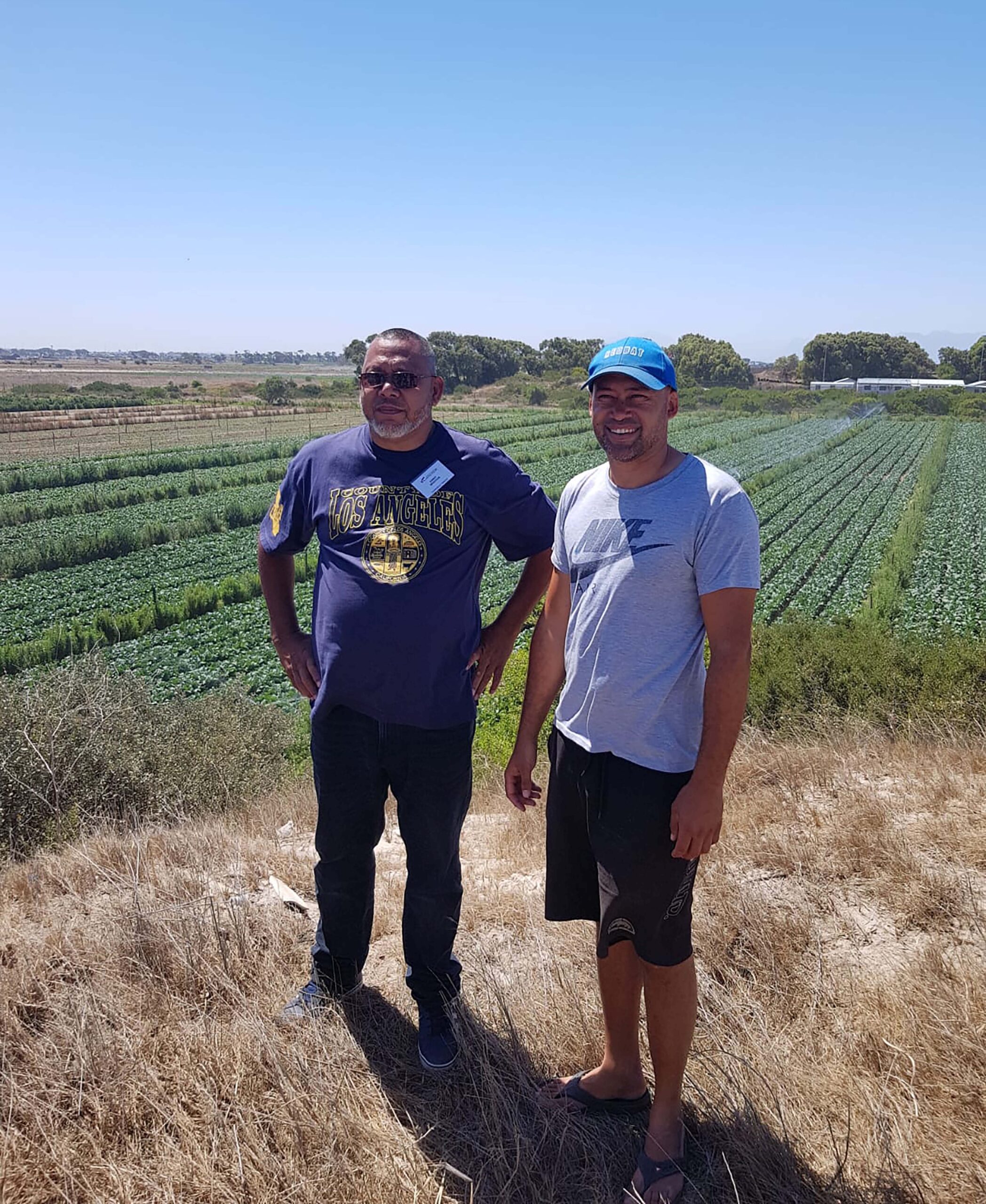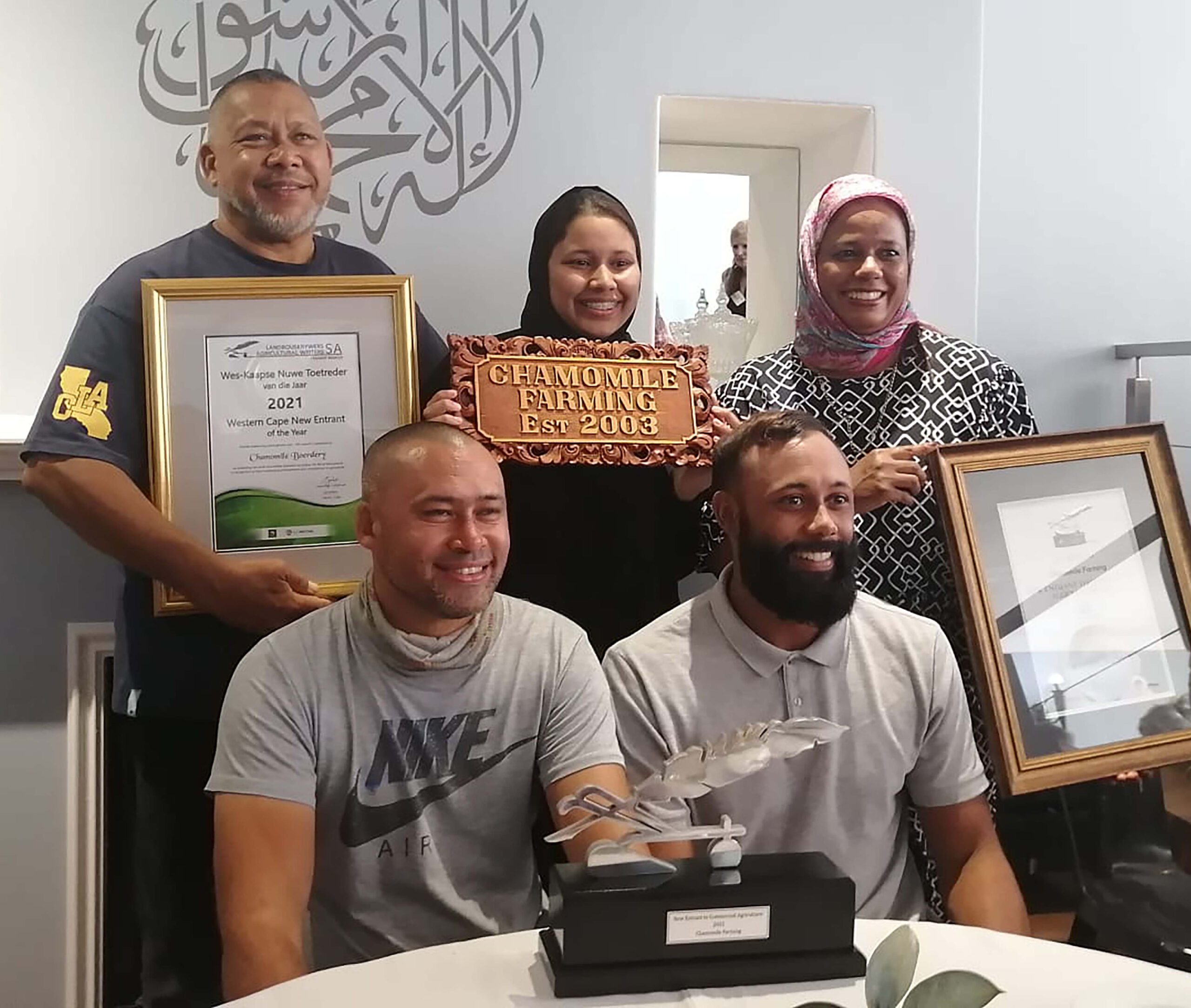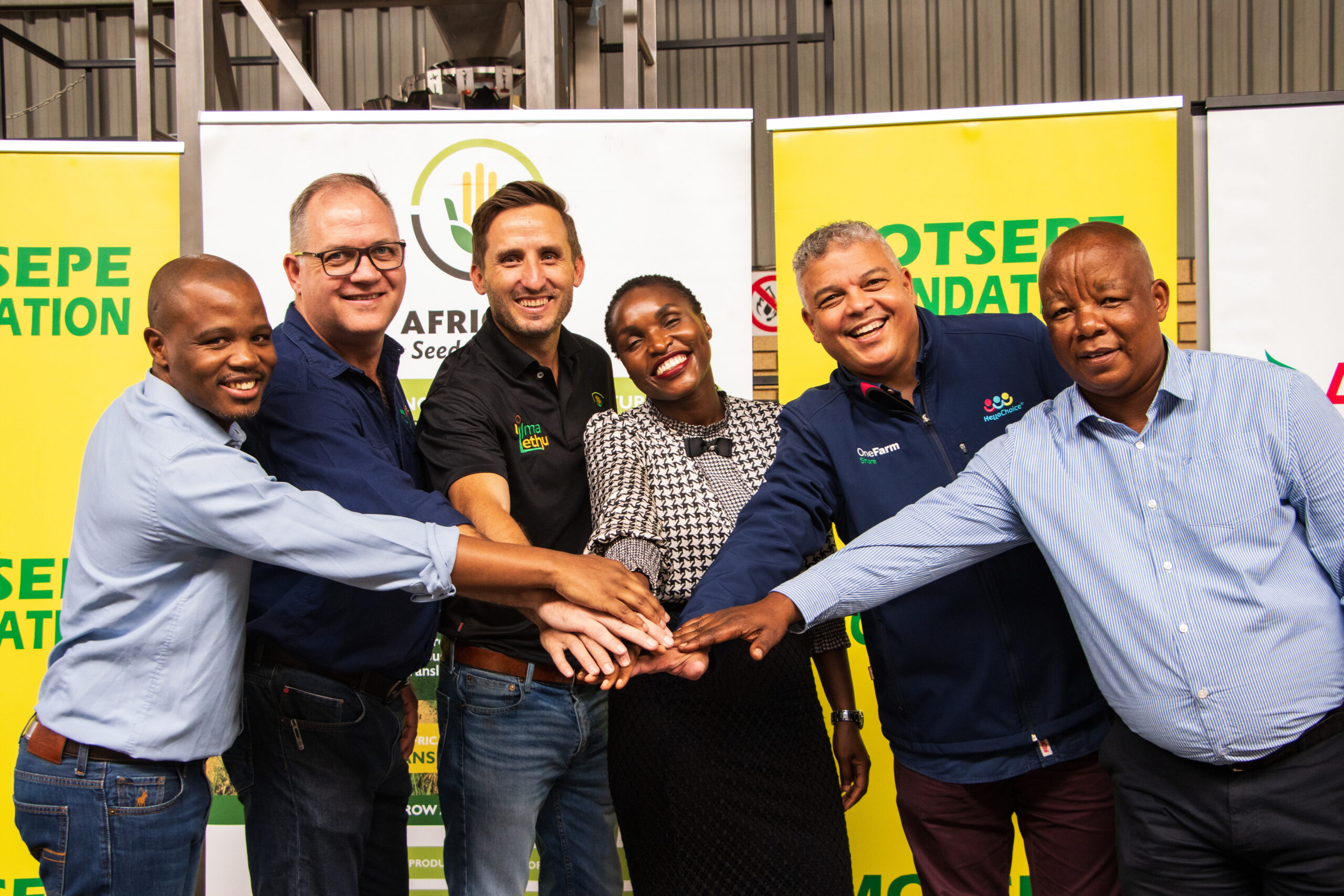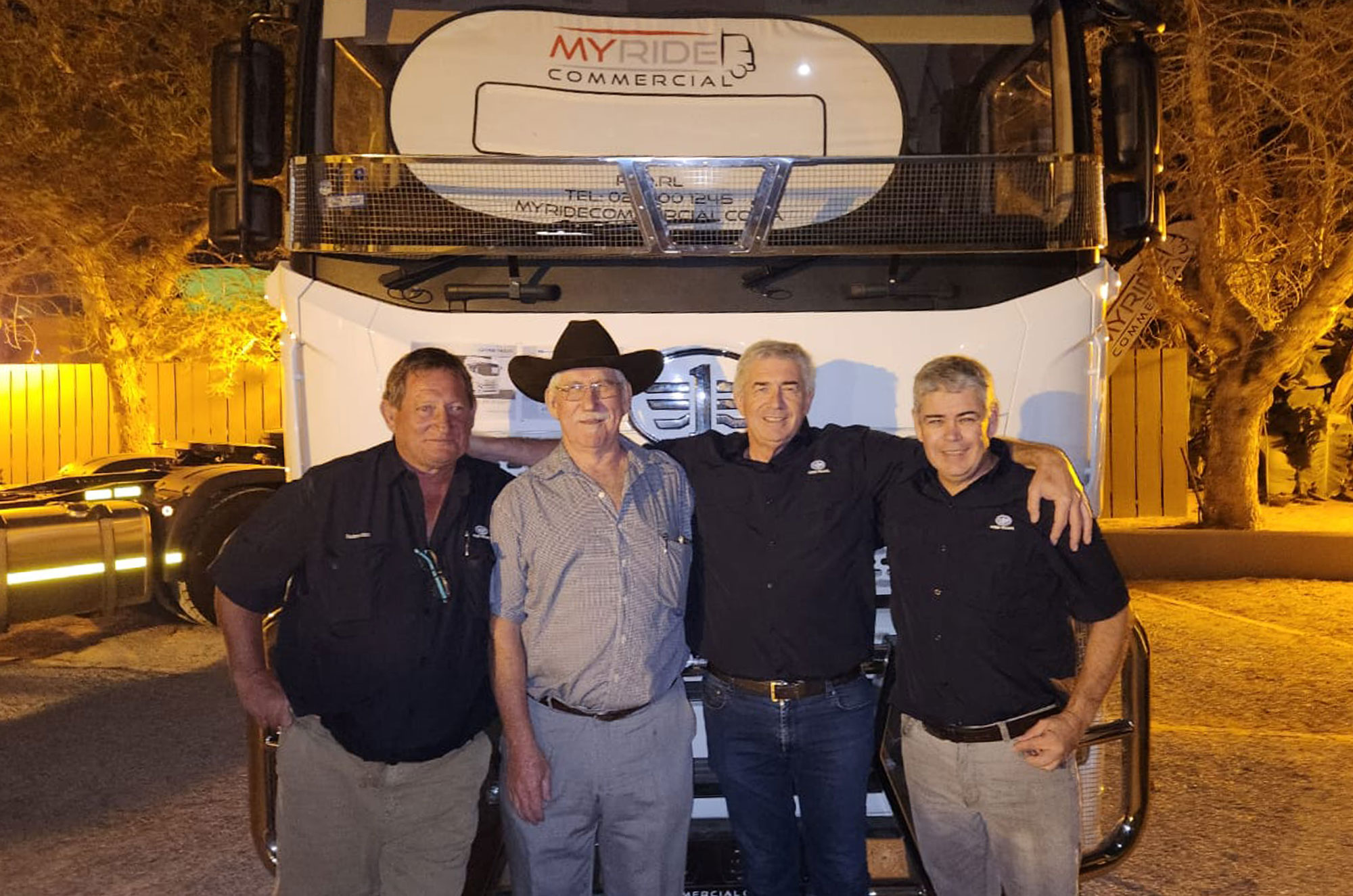“In life, you must decide which side of the shop counter you want to be on. If you are involved in the value chain of production and selling, you can have both the products and the means of making money. If you are on the other side of the counter, you will need to find the money to buy those products,” says Achmad Brinkhuis, who won the 2021 Agricultural Writers SA Award for New Entrant to Commercial Agriculture sponsored by Agility Agri and Health Squared Medical Scheme among others.
Award-winning first-generation farmers Achmad and his wife Wadea Jappie initially started tending their 1.6ha smallholding near Philippi to supplement their own groceries, growing herbs and rearing laying hens on a plot they bought to get their sons away from the dangerous influences of gangsterism in city life.
From humble beginnings the farm that started “almost by mistake” in 2003 has grown exponentially through the Brinkhuis family’s hard work, perseverance, and initiative. Chamomile Farming now supplies eggs to one of the country’s major egg producers and fresh herbs to supermarket chains. Along the way, Achmad learnt as much as he could about the entire value chain and even went on to be elected as chairperson of the South African Poultry Association (SAPA) in 2017. He and his son are also serving members of the Egg Control Board.
“A lot of new entrants think they want to start farming, but this is where all the risk lies. My advice to anyone who is looking to get into agriculture is to first get to know the whole agriculture value chain,” says Achmad.
“A newcomer thinks egg farming is all about chickens but that is only one small aspect. It starts with planting the grain that they eat, and includes the factors affecting the supply, the many aspects of distribution, the byproducts and processing. Maybe you don’t have land or water to start farming, but it does not mean you can’t be part of the value chain,” he asserts.

Achmad and Nabeel Brinkhuis.
Bianca Viljoen, marketing director at Agility, commended Achmad and his family on all they have achieved in a relatively short space of time. “Chamomile Farming is the embodiment of the energetic spirit of new agriculture entrants, and we commend them for the dedication and hard work it took for them to reach this point,” she says.
Agility Agri provides a fully integrated human capital risk management and employee benefit solution tailored to the specific requirements of South African agriculture and the industry’s entire value chain, flexible to fit the needs and budget of any employer and accessible even in remote rural areas. Together with medical scheme partner Health Squared, all aspects of health and financial wellbeing are provided for with a solution that encompasses the entire organisation, from CEO or farmer to staff at all employment levels.
“We are most grateful that Achmad has agreed to share the family’s journey in establishing and building Chamomile Farming, and some of the hard-earned wisdom they have gleaned over the years to help other new entrants to agriculture with the benefit of their experience.”
Achmad’s first piece of advice is to study the environment. “Find a niche where commercial farmers and big monopolies haven’t yet cornered the market completely, and there are many elements in the value chain that require far less start-up capital and don’t carry as much risk as farming does.”
“Our sons ate like vacuum cleaners when they were growing up, and so one day I went to buy five hens so we could have our own eggs. We were amazed at how many eggs they laid, and the next Saturday I went to get 20 more hens,” Achmad relates.
Soon the couple were selling their excess eggs at a local farmers’ market and were astonished at the demand. “A lot of the ladies who bake were coming to us because they wanted the freshest eggs, especially when the trend for mousse cakes began. We started supplying restaurants and local shops, and it grew from there.”
With infectious enthusiasm, Achmad describes how a blessing in disguise propelled the horticultural aspect of Chamomile Farming’s progress. “Before we moved in, a lot of people used to dump builder’s rubble here so, to give our boys something to keep them busy we asked them to clear the rocks and stones to earn pocket money. We were approached with an offer to grow chilies, but we didn’t have a tractor at that time, so we needed to ask the commercial farmer next door and we had to pay for him to plough our field.”
When the green chilies were harvested and presented to the buyer, it transpired that they wanted red chilies specifically, and were only prepared to pay for the dry weight – considerably less than had been expected for the weight of the fresh picked product. “We ended up with all these chilies, and my wife went through the Yellow Pages, as it was in those days, and managed to get us an appointment with a factory and we took some of our produce along.”
This set off a chain of events that led to the family run business securing a planting programme with Freshmark to plant according to the needs of their retailers.
“We started out supplying 100 packets a week of dhania, also known as coriander. Now we are supplying 1000 bunches a day, seven days a week during summer months. During winter we harvest radishes, carrots, parsley, leeks and seasonal greens to make soup packs for a supermarket chain, which has extended our productive season.”
“There have been a lot of challenges, believe you me, but when you get up every morning you focus on working through the difficulties that stand in the way of growth. Farming is all to do with economies of scale. We can’t help it, we just keep going.”
Achmad, Wadea and their sons, Nabeel and Tawfeeq, have remained hands on in the family business, and have a small yet highly productive and experienced team and a number of seasonal workers during busier times. Chamomile Farming has grown to include a second 22 Ha piece of farmland within Schaapkraal.
“On average we have 10 to 12 people working per day, including us. If you remain hands on, you are intimately involved in the business and can discover and fix problems before they occur. Also, if the staff see that you can do the work yourself, they will have more respect for you.”
The valued employees have helped to build Chamomile Farming, including three women who have been working with the family since the beginning. “The knowledge they brought with them from their experience working in commercial farming operations really helped us learn quickly to improve our methods, and we have never forgotten this,” he says.
“There’s nothing you can do about input costs, but you can maximise your human resources. Look after your people and you will get the most out of them. We also make sure their children are provided for, with all the school fees, school uniforms and textbooks taken care of well before the start of the year, which is our busiest time.
“In the afternoons the labourers’ kids all come here after school – and it looks like a creche as well as a farm. We realise the importance of investing in these children because the biggest threat to our sustainability would be if we grow more quickly than the communities around us; we need the community to grow with us too.
“We come from a similar background, we know the difficulties and we can’t forget our roots. “Now that we have our own tractors, if someone who is starting out asks for our help, it is our pleasure to assist wherever we can – and we wouldn’t ask for payment.
“No farm is an island, and your son might want to marry a girl from that family one day. What good is it to build your own operations and not use what you’ve gained to give someone else a chance,” Achmad concludes.
Source: Agility Agri









